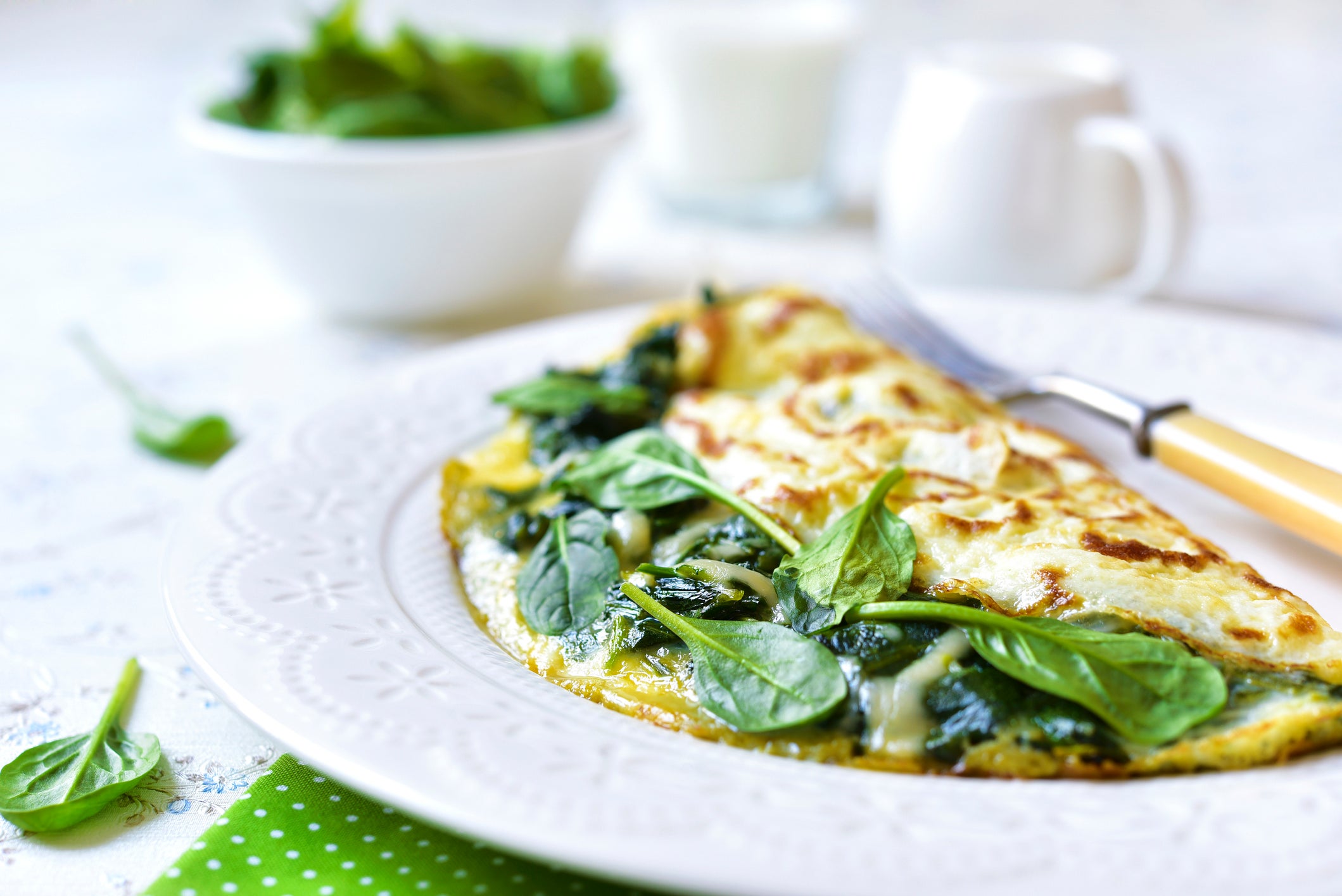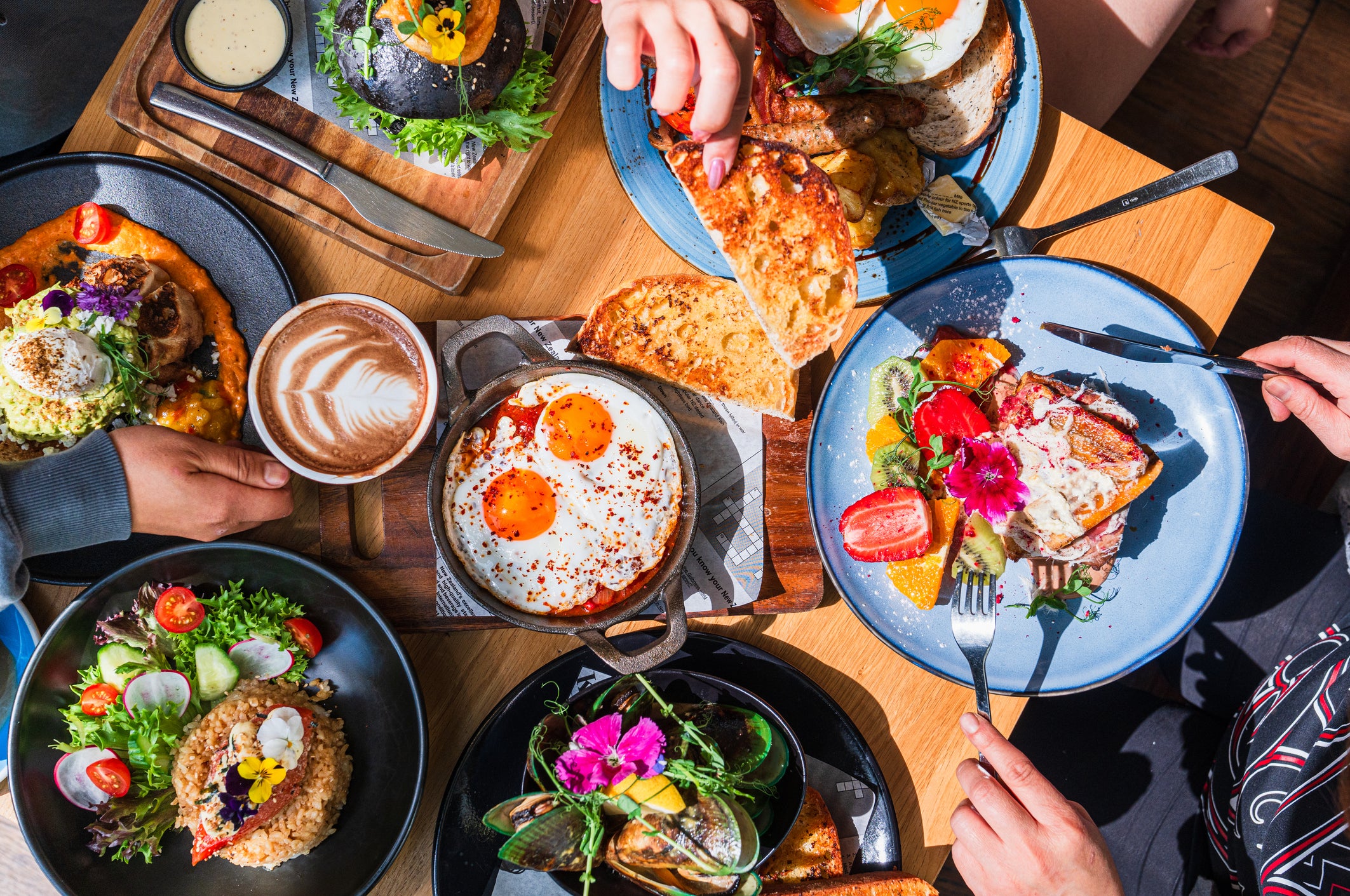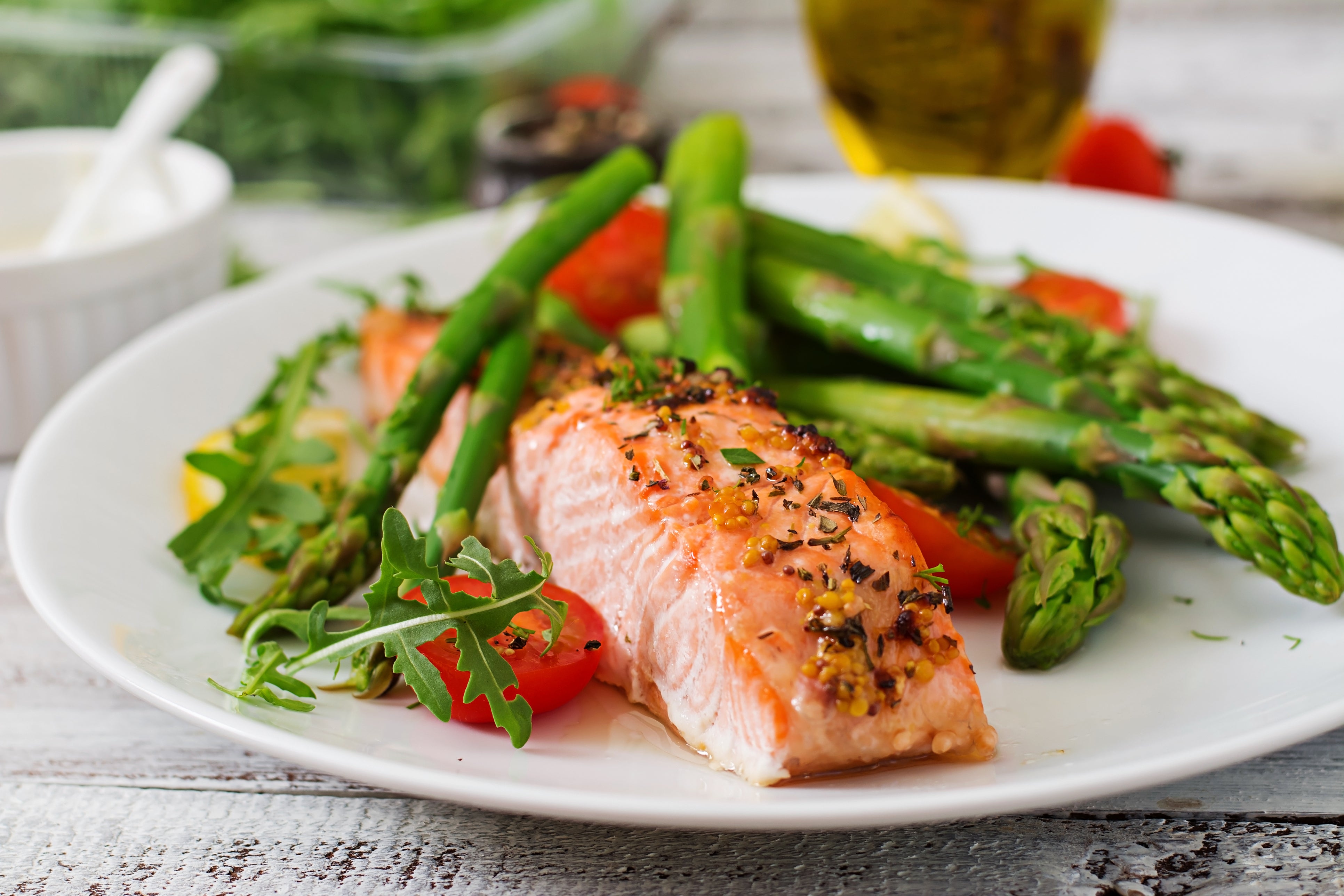How to get the right amount of protein – at every age
Most of us know eating slightly fewer carbs keeps our blood sugar levels steady and can help manage midlife weight gain. Protein, on the other hand, is the holy grail of health, right? Well, according to a new study, it might not be so simple. Maria Lally reports


It was the news from across the Atlantic that nobody expected. And we’re not just talking about Donald Trump’s historic victory over Kamala Harris... There was also a piece of research from the University of British Columbia (UBC) that found that, when it comes to balancing blood sugar levels, some of us need to consider the protein we’re eating just as much as the carbs.
The study, which was published this week in the health journal Cell Metabolism, looked at how individual insulin levels respond differently to carbohydrates (which are broken down by the body into glucose), proteins, and fats. The findings found insulin production after eating all three was more varied than previously thought, and that fat and protein could also cause an insulin response.
“Glucose is the well-known driver of insulin, but we were surprised to see such high variability, with some individuals showing a strong response to proteins, and others to fats, which had never been characterised before,” says Dr James Johnson, a professor of cellular and physiological sciences at UBS and author of the study.
“Insulin plays a major role in human health, in everything from diabetes, where it is too low, to obesity, weight gain and even some forms of cancer, where it is too high. These findings lay the groundwork for personalised nutrition that could transform how we treat and manage a range of conditions.”
Insulin is a hormone that helps your body turn food into energy and manage your blood sugar levels. In diabetics or those with prediabetes, your body can’t make enough insulin or can’t use it properly.
The Atkins Diet, which was popular in the early 2000s, with three million Brits trying it out, was perhaps the most famous low-carb plan. The diet’s premise centred around the fact insulin is released after eating carbs, which if not used by the body for energy, would be converted to fat. The belief is that a low-carb diet, therefore, causes the body to burn this fat.
However, while low-carb diets have fallen out of favour in recent years (and replaced by intermittent fasting or plant-based ones) the idea that protein keeps us full and our blood sugar levels steady has remained.
Little wonder a recent Mintel report found a 6.2 per cent increase in food and drink products displaying “high/added protein” claims between 2021 and 2023. According to a Fortune Business Insight report the global protein supplement market was projected to almost double in the next 10 years, reaching an estimated value of $22.58bn by 2032. And a surging demand for protein bars and shakes among bodybuilders, elite athletes, and casual exercisers is anticipated to drive the market.
But is “protein v carb maths” really that simple? “It’s an interesting area of study,” says nutritionist Sam Rice, author of The Midlife Method: How to lose weight and feel great after 40.
“Insulin is the hormone that controls the uptake of glucose from the bloodstream by the body's cells, and glucose is most readily available from carbohydrates. However, we do know from previous research that protein and fats can also trigger an insulin response. Whether this could cause insulin resistance and eventually type 2 diabetes, which a high-carb diet can, is up for debate.

This new study implies that the effect may vary significantly from person to person. However, because protein takes longer to digest, it’s great for keeping you feeling full and eating less overall, so if you’re trying to lose weight it’s still a great idea to reduce carbs in favour of protein.”
So, how do we know if we’re getting enough protein – or too much?
According to the British Nutrition Foundation (BNF), the average healthy man needs around 56g of protein while women need 45g. Protein is essential for building muscle, bone, skin, hair, and collagen, as well as helping our bodies digest food and regulate hormones and boost immunity. Our protein needs change throughout life, according to our age, sex, and how active we are.
Babies and children need more protein than adults, because they’re still growing bone and muscle. For example, while BNF guidelines recommend babies and infants eat 1.2g of protein per kilogram of body weight, adults need 0.75g. By adulthood, our protein requirements settle, however those who do regular strength training or who are pregnant, or breastfeeding require more protein.

“In midlife, increasing our protein intake also guards against age-related muscle loss,” says Rice. “Protein from animal sources contain the essential amino acids our bodies need. Good, lean animal protein sources include eggs, yoghurt, fish, and lean meat such as chicken or turkey. Most plant proteins from beans, rice, nuts, and seeds are incomplete and so need to be eaten in combination to deliver all the essential amino acids. However, exceptions to this are soybeans, chia seeds, and quinoa.”
Midlife women in particular benefit from plant-based protein. A January 2024 study published in the American Journal of Clinical Nutrition found that a diet rich in plant protein may keep women healthier as they get older. The study found a 3 per cent increase in plant protein led to a 38 per cent increase in likelihood of fewer chronic illnesses and cognitive decline and better physical mobility.
“In particular, plant protein seemed to be favourably associated with good mental health status and a lack of impairments in memory,” said the study’s author Andres Ardisson Korat, a scientist at Tufts University in the US. Another advantage to plant protein, he added, is that it tends to come from foods typically higher in fibre, vitamins, minerals, and antioxidants.
Protein can also help build muscle mass, which declines as we get older. However, one of the biggest causes of this loss is a lack of physical activity, says Roy Taylor, professor of medicine and metabolism at Newcastle University and author of Your Simple Guide to Reversing Type 2 Diabetes.

“As people get older, they tend to do less exercise and accumulate fat around their middle,” he says. “Muscle mass also declines and we become more fatty inside. This slows our organs down and our tendency for insulin secretion rises and puts a strain on the pancreas, which edges us towards diabetes.”
The best thing you can do to manage your insulin response, therefore, is to move more, he says. “A few years ago, I studied a group of older people who said they didn’t exercise. There were two very elderly individuals in the group who were extraordinary in that their body used blood glucose very effectively. When we asked what they did for a hobby, it turned out they did ballroom dancing twice a week.”
Of the study, Taylor says that while the differing insulin responses were “scientifically interesting”, the insulin-producing cells were put in a highly artificial environment, which might not happen in a human body.
“The findings are a long way off being practically applied. All it really does is underscore the message that a high-carb diet might be a bad idea, and that it’s almost certainly the case that the national diet of adding rice, pasta, or potatoes to every plate in order to make it a meal might be a bad idea.”
The best sources of meat-free protein
Pulses
A daily serving helps to lower your cholesterol level; tinned pulses count but check the label and choose ones that have no added salt or sugar. Easy add-ins to sauces, soups and stews; 3 tbsp (120g) of baked beans contains 6g of protein; 3 tbsp (105g) of chickpeas contains 8g of protein; 3 tbsp (120g) of lentils contains 9g of protein
Quinoa
With all the essential amino acids you find in animal protein, this is a swap for rice and pasta; 5 tbsp (185g) of cooked quinoa contains 8g of protein
Nuts
Good for protein and fibres and while high in fat (heart-healthy unsaturated fats) the advice is to stick to a handful per day (30g); 30g of peanuts, walnuts and hazelnuts contains 8g of protein
Dairy
Milk, yoghurt and cheese are great sources of protein and also contain calcium to keep bones healthy: 200ml of milk contains 7g of protein; 150ml of plain yoghurt contains 8g of protein; 30g of cheddar cheese contains 8g of protein.
Eggs
While eggs contain cholesterol they are low in saturated fat and good sources of B12 and vitamin D. 1 medium-sized egg contains 7g of protein
Source: The British Heart Foundation
Join our commenting forum
Join thought-provoking conversations, follow other Independent readers and see their replies
Comments

Bookmark popover
Removed from bookmarks